At many stages, it has appeared as though Sunny Deol's career was running out of steam, but each time he has risen Phoenix-like from the ashes.
Dinesh Raheja gives us a closer look at the man on his 67th birthday on October 19.
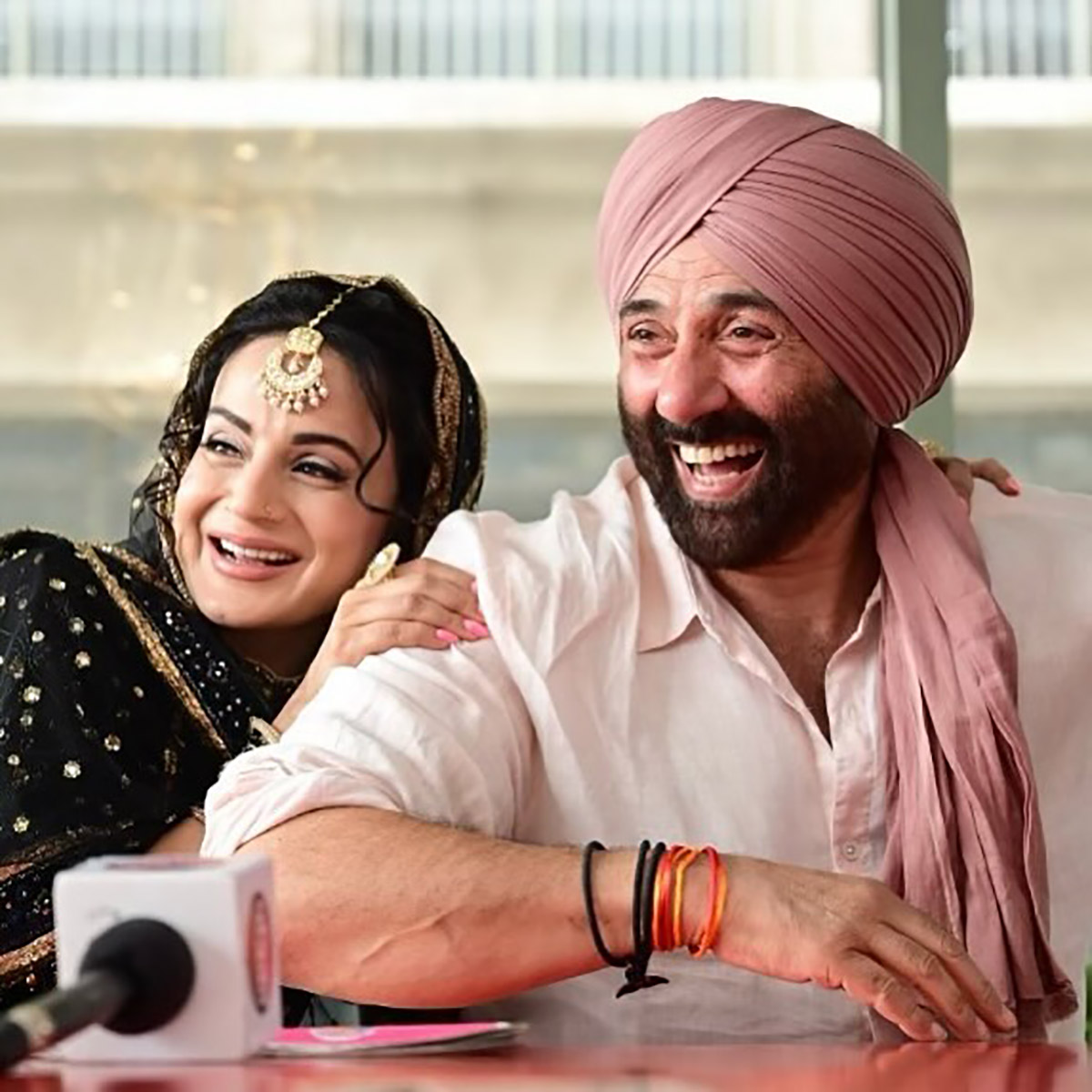
Dharmendra was one of the biggest stars in Hindi films.
But around 40 years after his debut (Dil Bhi Hum Bhi Tere, 1960), he was playing a character role in the 1998 Salman Khan-Kajol film, Pyar Kiya To Darna Kya,
His son Sunny Deol, on the other hand, headlined the blockbuster Gadar 2 (2023) exactly 40 years after he debuted as a hero with Betaab (1983).
In his mid-60s, Sunny has tided over financial problems and a longish career nadir to script an amazing comeback story.
While this may partly be a function of the increased career longevity for all stars across the board in contemporary Hindi cinema, it does also stand testament to Sunny's ability to remain relevant with the passage of time.
At many stages, it has appeared as though the actor's career was running out of steam, but each time Sunny has risen Phoenix-like from the ashes.

Gadar 2 was a Sunny Deol vehicle which wheeled the ageing star into a position of prominence once again by revisiting his biggest triumph (Gadar: Ek Prem Katha, 2001).
Yes, action stars can keep their guns blazing onscreen for decades, but what also worked in Sunny's favour is his signature intensity which is stamped over almost every scene of the film.
Action and intensity were Sunny's hallmarks even when his star dad launched his career four decades ago with Betaab.
Sunny made a successful debut as a horse-riding outdoorsman. Even his romancing of Amrita Singh in this Rahul Rawail directorial venture had a rugged, strong-and-silent quality.
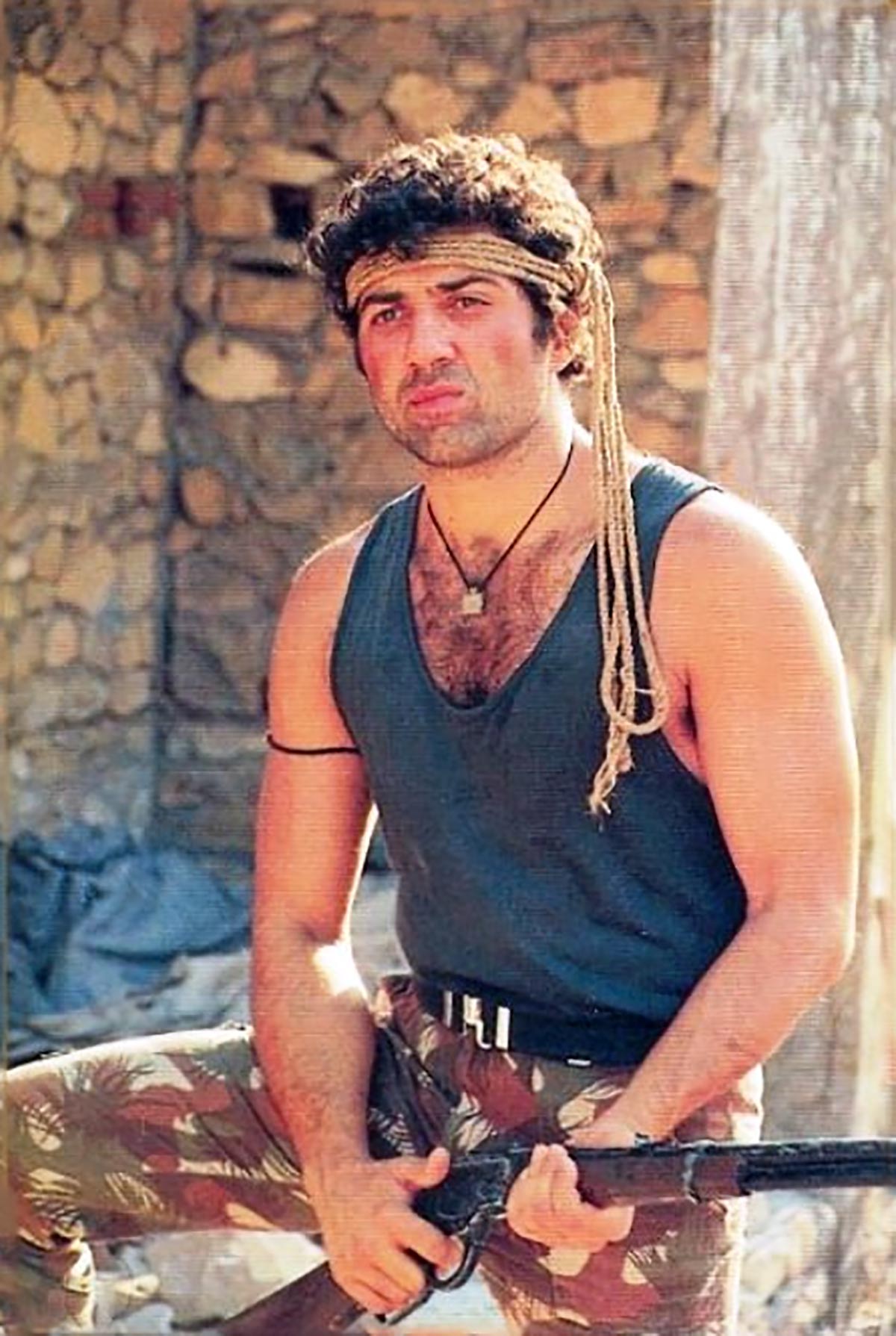
His father's film-makers like Raj Khosla (Sunny) and Nasir Hussain (Manzil Manzil) rushed to make films with the new star, but they flopped, and Sunny ended up forging his own path.
Though he enjoyed some success with the romantic Sohni Mahiwal (1984), Sunny's screen image soon strengthened into that of a brooding loner who spoke with his fists.
This was thanks largely to Rahul Rawail's follow-up films to Betaab -- Arjun (1985) and Dacait (1987). Though Arjun did reasonably well, Dacait proved too unrelentingly grim for audiences.

Shaken, Sunny give up on his earlier selectivity and signed a spate of films including many of indifferent quality.
He had seven releases in 1989.
But successes like Paap Ki Duniya (1988) and Tridev (1989) ensured his place in the Anil Kapoor-Sunny Deol-Jackie Shroff trio that ruled the roost among 1980s youngsters.
The actor hit a high in 1990 with Rajkumar Santoshi's tautly made, anti-system revenge drama, Ghayal. Sunny displayed a talent for raw despair and ruthless rage. It won him a Best Actor National Award.

Under Rajkumar Santoshi's direction, Sunny delivered two more knockout performances in films about ordinary people battling against stifling oppression, Damini (1993), for which he won another National Award and Ghatak (1996).
In Damini, Sunny's impassioned speech about the common man getting just 'taareekh pe taareekh' in the courts proved immensely crowd-pleasing.
So did his famous pronouncement: 'Yeh dhai kilo ka haath jab uthata hai na, toh insaan uthata nahin, uth jaata hai.'
Sunny was not playing the male lead in Damini, but he stole the show.
Unfortunately for him, the reverse happened in Yash Chopra's Darr (also 1993), in which the script favoured Shah Rukh Khan; and Sunny and his fans felt short-changed.

Rosy romanticism and NRI-centric themes permeated much of Hindi cinema in the 1990s after Hum Aapke Hain Koun? and Dilwale Dulhaniya Le Jayenge.
Actors scrambled to recast their images, but Sunny defied the trend.
When he did try and dance, like in the Jeet song Yaara o Yaara, his awkward foot-stomping caused much hilarity.
In film after film, Sunny played to his strengths in the action genre, but this meant his roles were often within a limited range.
Despite his painful back problem which has persisted over decades, Sunny continued to score with the action-packed Jeet (1996), Ziddi (1997) and especially Border (1997). The '90s veneration of all things Indian led to a boost in patriotic films like Border which Sunny shouldered with emotional acuity and sheer lung power.
Watch this space for more Sunny coming up!








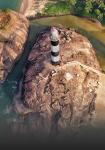

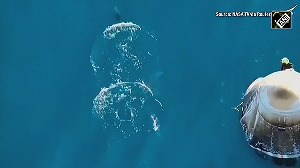
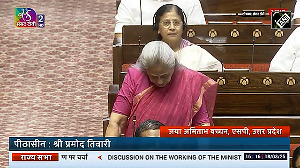
 © 2025
© 2025